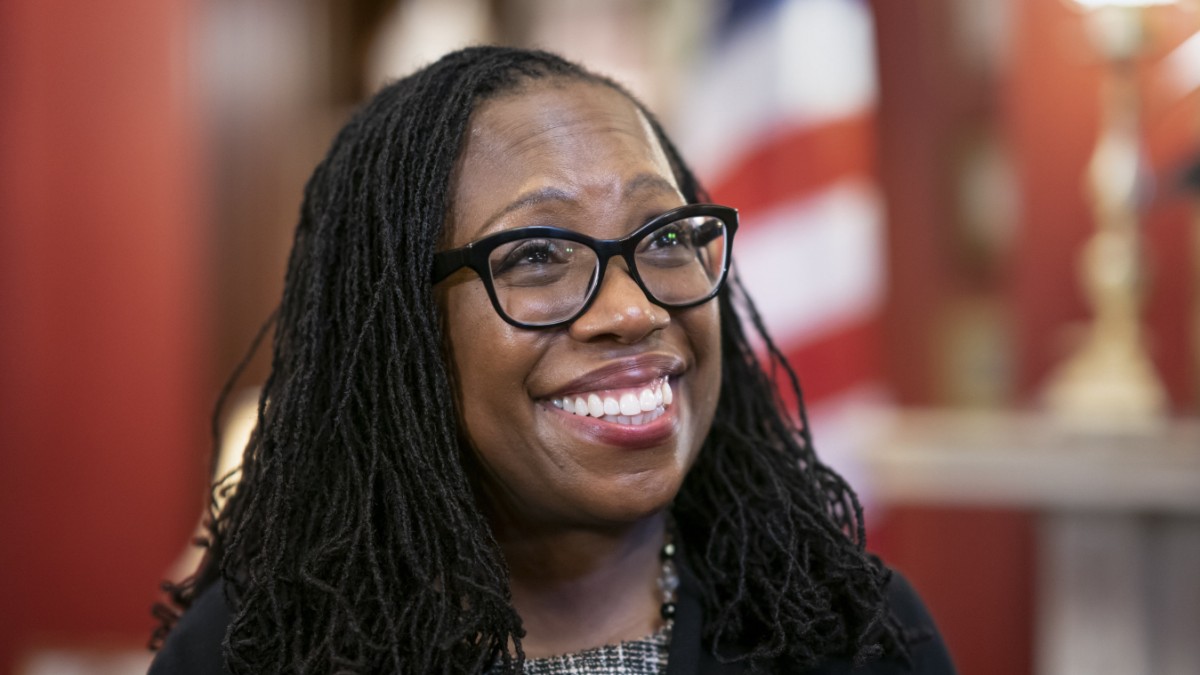It’s not often that Ginger Rogers is quoted in a US Senate hearing. Especially not when this hearing is in the Judiciary Committee and it’s about appointing a new Supreme Court judge. On such occasions, senators usually cite historical figures of greater weight than the legendary Hollywood actress and dancer.
It was different a few days ago. Ketanji Brown Jackson sat on the committee, and her appeal to the Supreme Court was up for debate. President Joe Biden nominated her for office – as the first black woman. And when it was Democratic Senator Cory Booker’s turn to say a few words, he repeated a phrase Rogers once said of her no less legendary and equally fleet-footed co-star: “I’ve done everything Fred Astaire did, only backwards and in heels.” That, Booker said, is why Jackson is sitting here today – because she’s worked twice and treble as hard as any white man to make it as far as she has as a woman and an African American.
As for Jackson’s resume, Booker is certainly right. Jackson was born in Washington, DC in 1970 and grew up in Miami, her father was a general counsel and her mother ran a school. It was a solid middle-class environment, but not necessarily what America’s bizarrely expensive and elite top universities recruit their students from. Jackson still made it to Harvard, where she received her law degree in 1996.
Their appointment will not change the majority of Conservatives
Jackson then worked for various US federal judges before being appointed by President Barack Obama as a judge in a federal court in Washington in 2012. In 2021, President Biden promoted her to the United States Court of Appeals for the District of Columbia Circuit, the country’s primary federal appeals court, before which many politically sensitive cases end up. Then, in February 2022, Biden proposed Jackson to replace Liberal Constitutional Court Justice Stephen Breyer, who is retiring.
Jackson’s appointment does not change the six-to-three majority that the Conservatives currently have on the Supreme Court – a left-wing judge replaces a left-wing judge. Experts also have no doubts that Jackson is sufficiently qualified to fill the office. There is therefore no reason for a big fight between Democrats and Republicans, actually the personnel should be able to pass the Senate without any problems.
But Jackson’s confirmation hearings have shown once again how politicized the American Constitutional Court has become, and how much the eternal culture war in the country is also poisoning this institution, which should be at least halfway neutral over party bickering. For example, Jackson was asked by a conservative senator whether she could define the term “woman”. No, Jackson replied, she wasn’t a biologist after all. That was an odd question for a candidate for legal office, but also an odd answer from a candidate whose appointment is historical specifically because she’s black woman is. But both the question and the answer were more likely to have been calculated to please a specific, activist audience than to convey information.
The fact that Ketanji Brown Jackson will soon be the first black judge to take up office on the Supreme Court will probably not be changed by the cross-shots by the Republicans. The Democrats have enough votes to confirm it. Unless something goes dramatically wrong, Jackson should be approved first by the Judiciary Committee and then by the full Senate in the coming days.
–


